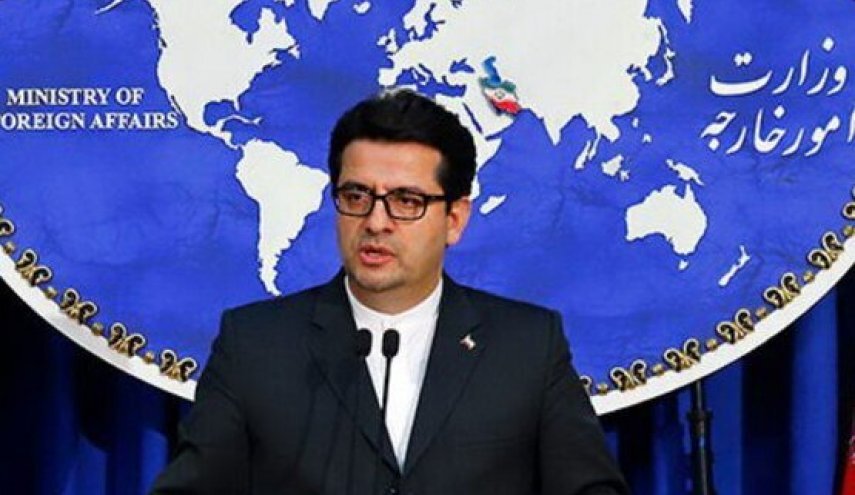FATF blacklisting of Iran politically motivated, Tehran says

TEHRAN - Foreign Ministry spokesman Abbas Mousavi said on Friday that the Paris-based Financial Action Task Force (FATF) blacklisting of Iran is “politically motivated”.
“Unfortunately, what happened is politically motivated which exists in the international mechanisms by the United States, Saudi Arabia and the Zionist regime of Israel. They have influence on these mechanisms and make efforts to politicize them,” he said.
He noted that Iran can never be labeled with money laundering and financing of terrorism.
The FATF on Friday placed Iran on its blacklist after Iran refused to comply with the body’s requirements.
“Saudi Arabia, as central bank of terrorism, and the Zionist regime, as a terrorist government, have provided most supports for the terrorist groups and organizations across the world, but Iran is blacklisted despite cooperation and transparency.”
Mousavi said, “Saudi Arabia, as central bank of terrorism, and the Zionist regime, as a terrorist government, have provided most supports for the terrorist groups and organizations across the world, but Iran is blacklisted despite cooperation and transparency.”
Opposition to join the FATF grew after the U.S. abrogated the 2015 nuclear deal and imposed the harshest ever sanctions in history against Iran.
According to Reuters, the FATF appeared to leave the door ajar for Iran saying “countries should also be able to apply countermeasures independently of any call by the FATF to do so.”
The U.S., the Zionist regime and Saudi Arabia had made great efforts to pressure the international body to blacklist Iran.
Abdolnasser Hemmati, Iran’s central bank governor, said the move by the FATF will not affect the Iranian foreign trade and stability in foreign exchange market.
“The performance of the central bank over the last year has given this assurance to the people that such events will not create for Iran’s foreign trade and the stability of foreign exchange market,” Hemmati wrote on his Instagram page.
Hemmati said such “political and unprofessional” behaviors toward Iran has been continuing against Iran since the summer of 2016.
He said the representatives of the U.S. and its allies at the FATF had been trying to undermine expert reports about the great steps taken by Iran in line with the FATF requirements.
The FATF said in October 2019 that it has given Iran a final deadline of February 2020 to tighten its laws against money laundering in compliance with the global watchdog’s financial standards.
“If before February 2020, Iran does not enact the Palermo and Terrorist Financing Conventions in line with the FATF Standards, then the FATF will fully lift the suspension of counter-measures and call on its members and urge all jurisdictions to apply effective counter-measures, in line with recommendation 19,” the FATF said in a statement.
In November 2019, Gholamreza Mesbahi-Moghadam, a cleric member of the Expediency Council trained in economy, said, “In a situation in which the country is under the most severe sanctions, joining such conventions is self-inflicted sanctions. In the situation in which the United States seeks to limit the country’s financial relations, it is not beneficial to join institutions like FATF.”
NA/PA
Leave a Comment